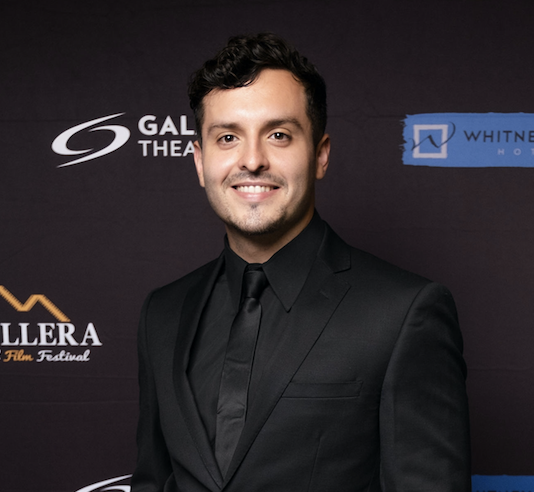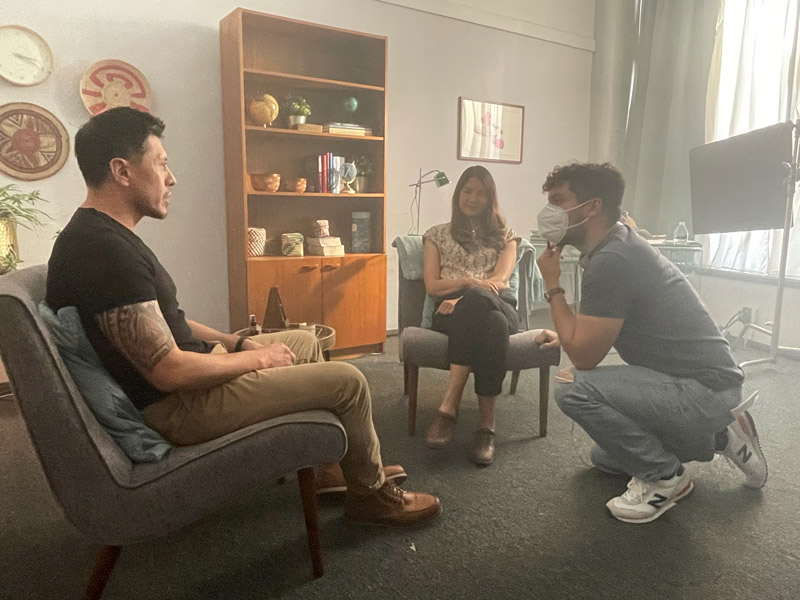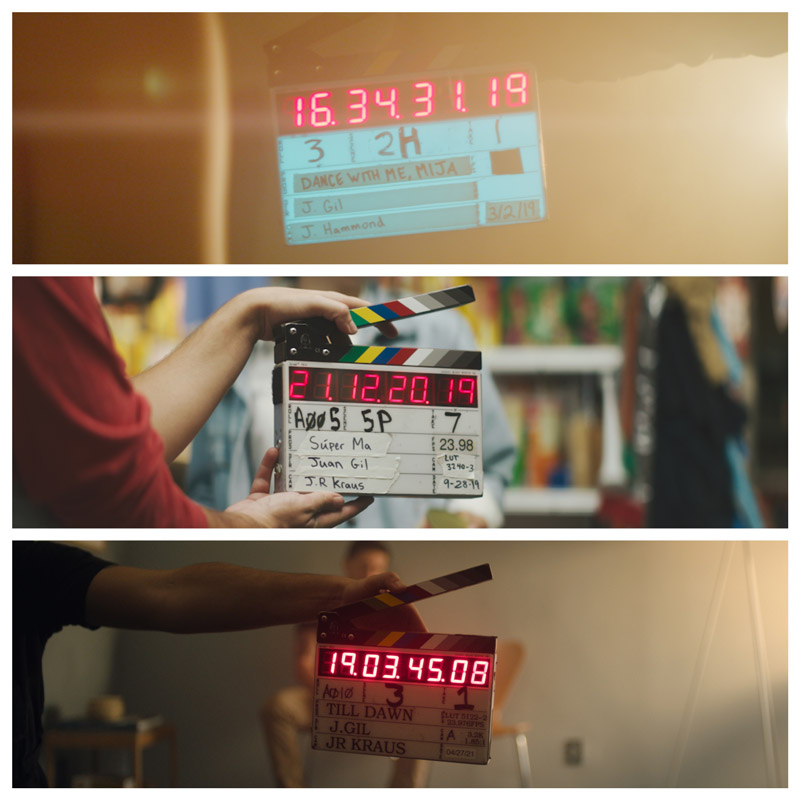
Read a Q&A with Juan Gil, a CoMC graduate who took a leap to Los Angeles to fulfill his dreams in filmmaking.
CoMC Alumnus Juan Gil talks life in college, route to filmmaking success

1. What is your hometown?
Houston, TX
2. What is your major and year of graduation?
I graduated in 2018 with a Bachelor of Arts in Electronic Media and Communication and an Entertainment Media Certificate.
3. What is your current job and location?
I'm currently working as a creative producer for CIEN+, but my main occupation is being a film director for my own works. I'm still based in Los Angeles, and I've directed multiple shorts film like “Super Ma” last year and “Dance with Me Mija” in 2019.
4. When you came to college, what was it you wanted to do after graduating? How does that differ, if any, from what you do now?
I knew immediately in college that I wanted to make movies. Ask anyone in CoMC. I made more films outside of college than inside. I just never stopped loving and watching movies. I was too chicken in high school, so once I was in college, I knew I had to catch up even though I was 18 at the time. Texas Tech is a great school, but it's not a film school. Sure, we have the equipment checkout room, but the stories, actors or extras all came from the resources outside of the college. I used everything at my disposal to make the films I wanted to make even if they weren't required in a classroom.
5. What was the most influential, transformative experience at the CoMC for you? How does that experience factor into your life today?
Dr. Jerod Foster, a wonderful person through and through, taught me valuable life lessons through his adventure media class. That experience was documentary and a unique class that teaches you life principals that transcend the classroom. One of the things he taught us that I'm still using today is how to manage personalities. Not everyone is going to work and talk the same way you do. I went on it twice and I could not believe how hands-on it was. We're camping, living on the road and learning so much about, well…adventure media. That's something I still carry with me today.
6. What experiences outside of college helped shape your profession? How does your profession allow you to continue your passion?
Even now, it doesn't differ all that much because my first job in LA was being a production assistant for Netflix's “Lucifer”. Within two days of landing in LA, I was working on a set. I was on the phone and a day later I become a production assistant (PA), which if anyone knows, is the bottom of the barrel. But, it was my start in LA. Being on set made all my sets look silly in comparison. Of course, not every production looks like this, and I learned most importantly, “Oh, that's how they do this.”
It was cool, but I was a PA. You don't really get to direct or write, so I knew things had to change for me. It was a reality check, but I knew I didn't want to be a PA forever. It really scared me to leave my position, but I had authority and confidence in college. I wanted to be in control of my own projects because my sights were set on becoming a director. So, I made LA my new playground and I continued to make a lot of films because to be a director you must show that you directed projects. If you're a video or photo guy, you have visual evidence. As a director, you can't really show that on a resume without having tangible products.
7. What advice do you have for CoMC students graduating?
This is what I'd tell myself if I could go back in time. I wish I started writing and finding actors instead of focusing on the visual side of things. Reading and writing are so vital to storytelling, but we always overlook them. When I was in college, I was the opposite. Anyone can point a camera and make it look pretty, but not everyone can point a camera and say something. Focus on the storytelling aspects. Then, get your hands on a camera and learn about the technicality behind it. Another thing is, don't get overly into it. I've seen people on sets devote all their time to lighting or sound and never get anything done. Just start shooting in natural light and find good actors. Just start shooting as much as possible.
A big thing for me is, if you are tethering on a big movement, just do it. If you stay out of stability, you won't change. You need discomfort to produce change. It's like an equation that won't work if you're missing a part. I wish someone told me and shook my shoulders for me to take that big step. Four years of learning seems like a long time, but it feels a lot shorter. Just do it and take that risk.
8. What do you feel when you see TTU/TTU CoMC attire or swag out in the wild?
I usually talk to them because we went to the same college. It's that sense of camaraderie you only get from going to the same college. Our conversations usually end up going into what they're up to or “What did you do?” It's all about building those connections because you'll never know if you can help each other down the line.

